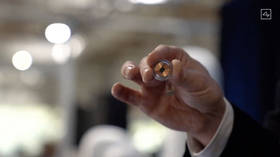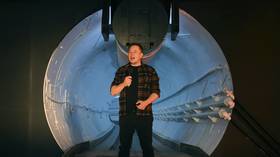Musk’s brain chip implanted in first human

Elon Musk has said his biotech company Neuralink has successfully implanted one of its brain chips in a human for the first time, claiming the recipient is in good condition following the surgery. The firm hopes to create an interface allowing people to control devices using their brain alone.
Musk unveiled the development in a post to his social media site, X (formerly Twitter), on Monday evening, stating that the “first human received an implant from Neuralink yesterday and is recovering well.”
Though he offered few other details, the tech mogul added that initial results had shown “promising neuron spike detection,” referring to brain cells which send chemical and electrical signals to the rest of the body.
Neuralink described its first human trial in a press release last year, dubbed PRIME, or “Precise Robotically Implanted Brain-Computer Interface.” Ultimately, it hopes to develop a “fully-implantable, wireless brain-computer interface” that could open up groundbreaking treatments for people suffering various disabilities, including paralysis.
The company said it would use its R1 Robot to surgically implant the chip in a region of the brain that controls motor function, noting that it is intended to “record and transmit brain signals wirelessly to an app that decodes movement intention.”
The trial was granted approval by the US Food and Drug Administration (FDA) last May, overcoming allegations that earlier tests resulted in “animal-welfare violations.” According to more than 20 current and former Neuralink employees, as well as dozens of internal company documents obtained by Reuters, Musk had pushed Neuralink researchers to “accelerate development,” in some cases resulting in “botched experiments.”
Musk has voiced hopes the brain implant could also allow the blind to regain their sight, among other medical miracles. While the results of the first in-human trial have yet to be seen, the billionaire has demonstrated the brain chip on more than one occasion, including an April 2021 presentation in which a macaque monkey purportedly played a video game using its mind alone.












